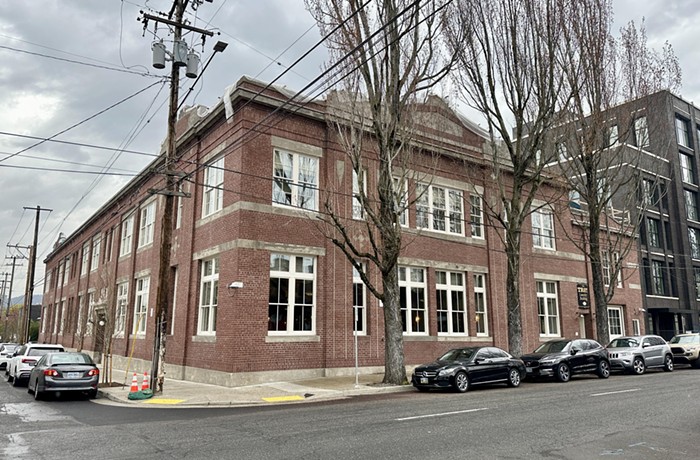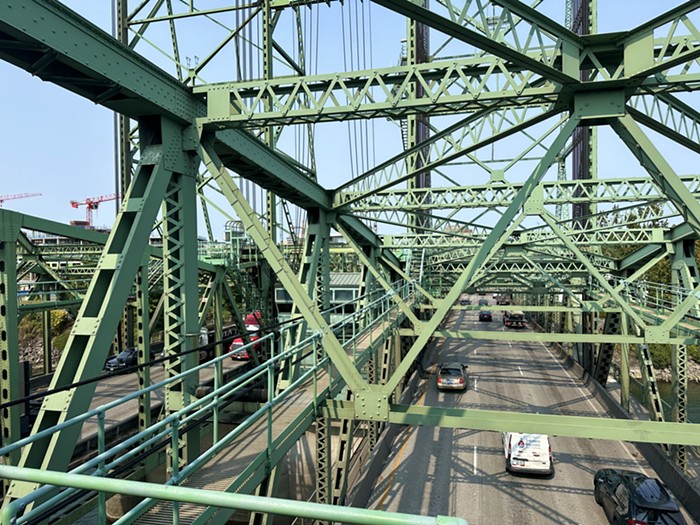
The deal was struck tonight at a summit including Adams, Cogen, TriMet boss Neil McFarlane, Clackamas County Commissioner Bob Austin and a representative of U.S. Rep. Earl Blumenauer's office.
Portland's $100 million contribution (not including financing costs) will remain the same, but the city could get money back if planners can achieve significant savings through changes like a redesign of the new bridge's west side approach. The first half of any savings achieved would first to go help TriMet close a $100 million gap in funding for a new light-rail to Milwaukie. (Clackamas County also agreed to chip in some $6 million.)
Adams, in an interview tonight after what he said was a 90-minute meeting, focused in particular on the west side interchange, which is currently slated to eat up a third of the project's budget. Adams, in fact, called that "absurd." He hopes to see $20 million to $40 million in savings on that element alone.
"The design for it can only delight an engineer," he says. "It's unnecessary. Jeff and I both believe there are cost savings there."
In exchange for forcing a cost-savings review, and for the parties agreeing to let Portland receiving a share of that cash, Adams dropped his request that the county transfer control of its Willamette River bridges to Portland. The parties hope to keep on schedule by selling bonds for the Sellwood project next January, provided the Portland City Council, TriMet, and the two county commissions approve tonight's agreement.
The schedule is particularly important. Work is slated to begin in 2012, and it can't start soon enough. The creaky bridge is a seismic disaster, scoring 2 out of 100 on a federal stress test. When Adams sent a letter to Cogen last month indicating he might hold off on a pledge to hand over Portland's share of the project's cash, that timeline was nearly thrown into disarray—threatening the portion of the bridge funds that federal officials had pledged to fork over.
"It's absolutely vital," Adams says. "Both of these projects"—including the light-rail extension—"have been on South Portland's wish list for two decades."


















